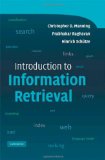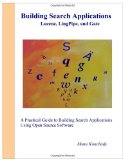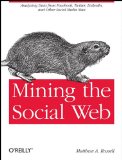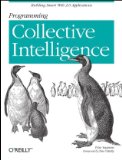Apache Solr vs Elasticsearch
http://solr-vs-elasticsearch.com/
Apache Solr vs Elasticsearch
The Feature Smackdown
API
| Feature | Solr 6.2.1 | ElasticSearch 5.0 |
|---|---|---|
| Format | XML, CSV, JSON | JSON |
| HTTP REST API |  |
 |
Binary API  |
 SolrJ SolrJ |
 TransportClient, Thrift (through a plugin) TransportClient, Thrift (through a plugin) |
| JMX support |  |
 ES specific stats are exposed through the REST API ES specific stats are exposed through the REST API |
Official client libraries  |
Java | Java, Groovy, PHP, Ruby, Perl, Python, .NET, Javascript Official list of clients |
Community client libraries  |
PHP, Ruby, Perl, Scala, Python, .NET, Javascript, Go, Erlang, Clojure | Clojure, Cold Fusion, Erlang, Go, Groovy, Haskell, Java, JavaScript, .NET, OCaml, Perl, PHP, Python, R, Ruby, Scala, Smalltalk, Vert.x Complete list |
3rd-party product integration (open-source) |
Drupal, Magento, Django, ColdFusion, Wordpress, OpenCMS, Plone, Typo3, ez Publish, Symfony2, Riak (via Yokozuna) | Drupal, Django, Symfony2, Wordpress, CouchBase |
3rd-party product integration (commercial) |
DataStax Enterprise Search, Cloudera Search, Hortonworks Data Platform, MapR | SearchBlox, Hortonworks Data Platform, MapR etc Complete list |
Output |
JSON, XML, PHP, Python, Ruby, CSV, Velocity, XSLT, native Java | JSON, XML/HTML (via plugin) |
Infrastructure
| Feature | Solr 6.2.1 | ElasticSearch 5.0 |
|---|---|---|
| Master-slave replication |  Only in non-SolrCloud. In SolrCloud, behaves identically to ES. Only in non-SolrCloud. In SolrCloud, behaves identically to ES. |
 Not an issue because shards are replicated across nodes. Not an issue because shards are replicated across nodes. |
| Integrated snapshot and restore | Filesystem | Filesystem, AWS Cloud Plugin for S3 repositories, HDFS Plugin for Hadoop environments, Azure Cloud Plugin for Azure storage repositories |
Indexing
| Feature | Solr 6.2.1 | ElasticSearch 5.0 |
|---|---|---|
| Data Import | DataImportHandler - JDBC, CSV, XML, Tika, URL, Flat File | [DEPRECATED in 2.x] Rivers modules - ActiveMQ, Amazon SQS, CouchDB, Dropbox, DynamoDB, FileSystem, Git, GitHub, Hazelcast, JDBC, JMS, Kafka, LDAP, MongoDB, neo4j, OAI, RabbitMQ, Redis, RSS, Sofa, Solr, St9, Subversion, Twitter, Wikipedia |
| ID field for updates and deduplication |  |
 |
DocValues  |
 |
 |
Partial Doc Updates  |
 with stored fields with stored fields |
 with _source field with _source field |
Custom Analyzers and Tokenizers  |
 |
 |
Per-field analyzer chain  |
 |
 |
Per-doc/query analyzer chain  |
 |
 |
Index-time synonyms  |
 |
 Supports Solr and Wordnet synonym format Supports Solr and Wordnet synonym format |
Query-time synonyms  |
 especially via hon-lucene-synonyms especially via hon-lucene-synonyms |
 Technically, yes, but practically no because multi-word/phrase query-time synonyms are not supported. See ES docs and hon-lucene-synonyms blog for nuances. Technically, yes, but practically no because multi-word/phrase query-time synonyms are not supported. See ES docs and hon-lucene-synonyms blog for nuances. |
Multiple indexes  |
 |
 |
Near-Realtime Search/Indexing  |
 |
 |
Complex documents  |
 |
 |
Schemaless  |
 4.4+ 4.4+ |
 |
Multiple document types per schema  |
 One set of fields per schema, one schema per core One set of fields per schema, one schema per core |
 |
Online schema changes  |
 Schemaless mode or via dynamic fields. Schemaless mode or via dynamic fields. |
 Only backward-compatible changes. Only backward-compatible changes. |
Apache Tika integration  |
 |
 |
Dynamic fields  |
 |
 |
Field copying  |
 |
 via multi-fields via multi-fields |
Hash-based deduplication  |
 |
 Murmur plugin or ER plugin Murmur plugin or ER plugin |
Searching
| Feature | Solr 6.2.1 | ElasticSearch 5.0 |
|---|---|---|
Lucene Query parsing  |
 |
 |
Structured Query DSL  |
 Need to programmatically create queries if going beyond Lucene query syntax. Need to programmatically create queries if going beyond Lucene query syntax. |
 |
Span queries  |
 via SOLR-2703 via SOLR-2703 |
 |
Spatial/geo search  |
 |
 |
Multi-point spatial search  |
 |
 |
Faceting  |
 |
 Top N term accuracy can be controlled with shard_size Top N term accuracy can be controlled with shard_size |
Advanced Faceting  |
 New JSON faceting API as of Solr 5.x New JSON faceting API as of Solr 5.x |
 blog post blog post |
| Geo-distance Faceting |  |
 |
Pivot Facets  |
 |
 |
| More Like This |  |
 |
Boosting by functions  |
 |
 |
Boosting using scripting languages  |
 |
 |
Push Queries  |
 JIRA issue JIRA issue |
 Percolation. Distributed percolation supported in 1.0 Percolation. Distributed percolation supported in 1.0 |
Field collapsing/Results grouping  |
 |
 |
Query Re-Ranking  |
 |
 via Rescoring or a plugin via Rescoring or a plugin |
Index-based Spellcheck  |
 |
 Phrase Suggester Phrase Suggester |
Wordlist-based Spellcheck  |
 |
 |
| Autocomplete |  |
 |
Query elevation  |
 |
 workaround workaround |
Intra-index joins  |
 via parent-child query via parent-child query |
 via has_children and top_children queries via has_children and top_children queries |
Inter-index joins  |
 Joined index has to be single-shard and replicated across all nodes. Joined index has to be single-shard and replicated across all nodes. |
 |
Resultset Scrolling  |
 New to 4.7.0 New to 4.7.0 |
 via scan search type via scan search type |
Filter queries  |
 |
 also supports filtering by native scripts also supports filtering by native scripts |
Filter execution order  |
 local params and cache property local params and cache property |
 |
Alternative QueryParsers  |
 DisMax, eDisMax DisMax, eDisMax |
 query_string, dis_max, match, multi_match etc query_string, dis_max, match, multi_match etc |
Negative boosting  |
 but awkward. Involves positively boosting the inverse set of negatively-boosted documents. but awkward. Involves positively boosting the inverse set of negatively-boosted documents. |
 |
| Search across multiple indexes |  it can search across multiple compatible collections it can search across multiple compatible collections |
 |
| Result highlighting |  |
 |
Custom Similarity  |
 |
 |
Searcher warming on index reload  |
 |
 Warmers API Warmers API |
| Term Vectors API |  |
 |
Customizability
| Feature | Solr 6.2.1 | ElasticSearch 5.0 |
|---|---|---|
Pluggable API endpoints  |
 |
 |
Pluggable search workflow  |
 via SearchComponents via SearchComponents |
 |
Pluggable update workflow  |
 via UpdateRequestProcessor via UpdateRequestProcessor |
 |
| Pluggable Analyzers/Tokenizers |  |
 |
Pluggable QueryParsers  |
 |
 |
| Pluggable Field Types |  |
 |
| Pluggable Function queries |  |
 |
| Pluggable scoring scripts |  |
 |
Pluggable hashing  |
 |
 |
Pluggable webapps  |
 |
 [site plugins DEPRECATED in 5.x] blog post [site plugins DEPRECATED in 5.x] blog post |
Automated plugin installation  |
 |
 Installable from GitHub, maven, sonatype or elasticsearch.org Installable from GitHub, maven, sonatype or elasticsearch.org |
Distributed
| Feature | Solr 6.2.1 | ElasticSearch 5.0 |
|---|---|---|
Self-contained cluster  |
 Depends on separate ZooKeeper server Depends on separate ZooKeeper server |
 Only Elasticsearch nodes Only Elasticsearch nodes |
| Automatic node discovery |  ZooKeeper ZooKeeper |
 internal Zen Discovery or ZooKeeper internal Zen Discovery or ZooKeeper |
| Partition tolerance |  The partition without a ZooKeeper quorum will stop accepting indexing requests or cluster state changes, while the partition with a quorum continues to function. The partition without a ZooKeeper quorum will stop accepting indexing requests or cluster state changes, while the partition with a quorum continues to function. |
 Partitioned clusters can diverge unless discovery.zen.minimum_master_nodes set to at least N/2+1, where N is the size of the cluster. If configured correctly, the partition without a quorum will stop operating, while the other continues to work. See this Partitioned clusters can diverge unless discovery.zen.minimum_master_nodes set to at least N/2+1, where N is the size of the cluster. If configured correctly, the partition without a quorum will stop operating, while the other continues to work. See this |
| Automatic failover |  If all nodes storing a shard and its replicas fail, client requests will fail, unless requests are made with the shards.tolerant=true parameter, in which case partial results are retuned from the available shards. If all nodes storing a shard and its replicas fail, client requests will fail, unless requests are made with the shards.tolerant=true parameter, in which case partial results are retuned from the available shards. |
 |
| Automatic leader election |  |
 |
| Shard replication |  |
 |
Sharding  |
 |
 |
Automatic shard rebalancing  |
 |
 it can be machine, rack, availability zone, and/or data center aware. Arbitrary tags can be assigned to nodes and it can be configured to not assign the same shard and its replicates on a node with the same tags. it can be machine, rack, availability zone, and/or data center aware. Arbitrary tags can be assigned to nodes and it can be configured to not assign the same shard and its replicates on a node with the same tags. |
| Change # of shards |  Shards can be added (when using implicit routing) or split (when using compositeId). Cannot be lowered. Replicas can be increased anytime. Shards can be added (when using implicit routing) or split (when using compositeId). Cannot be lowered. Replicas can be increased anytime. |
 each index has 5 shards by default. Number of primary shards cannot be changed once the index is created. Replicas can be increased anytime. each index has 5 shards by default. Number of primary shards cannot be changed once the index is created. Replicas can be increased anytime. |
| Shard splitting |  |
 |
Relocate shards and replicas  |
 can be done by creating a shard replicate on the desired node and then removing the shard from the source node can be done by creating a shard replicate on the desired node and then removing the shard from the source node |
 can move shards and replicas to any node in the cluster on demand can move shards and replicas to any node in the cluster on demand |
Control shard routing  |
 shards or _route_ parameter shards or _route_ parameter |
 routing parameter routing parameter |
| Pluggable shard/replica assignment |  Rule-based replica assignment Rule-based replica assignment |
 Probabilistic shard balancing with Tempest plugin Probabilistic shard balancing with Tempest plugin |
| Consistency | Indexing requests are synchronous with replication. A indexing request won't return until all replicas respond. No check for downed replicas. They will catch up when they recover. When new replicas are added, they won't start accepting and responding to requests until they are finished replicating the index. | Replication between nodes is synchronous by default, thus ES is consistent by default, but it can be set to asynchronous on a per document indexing basis. Index writes can be configured to fail is there are not sufficient active shard replicas. The default is quorum, but all or one are also available. |
Misc
| Feature | Solr 6.2.1 | ElasticSearch 5.0 |
|---|---|---|
| Web Admin interface |  bundled with Solr bundled with Solr |
 Marvel or Kibana apps Marvel or Kibana apps |
| Visualisation | Banana (Port of Kibana) | Kibana |
| Hosting providers | WebSolr, Searchify, Hosted-Solr, IndexDepot, OpenSolr, gotosolr | Found, ObjectRocket, bonsai.io, Indexisto, qbox.io, IndexDepot, Compose.io, Sematext Logsene |
Thoughts...
I'm embedding my answer to this "Solr-vs-Elasticsearch" Quora question verbatim here:
1. Elasticsearch was born in the age of REST APIs. If you love REST APIs, you'll probably feel more at home with ES from the get-go. I don't actually think it's 'cleaner' or 'easier to use', but just that it is more aligned with web 2.0 developers' mindsets.
2. Elasticsearch's Query DSL syntax is really flexible and it's pretty easy to write complex queries with it, though it does border on being verbose. Solr doesn't have an equivalent, last I checked. Having said that, I've never found Solr's query syntax wanting, and I've always been able to easily write a custom SearchComponent if needed (more on this later).
3. I find Elasticsearch's documentation to be pretty awful. It doesn't help that some examples in the documentation are written in YAML and others in JSON. I wrote a ES code parser once to auto-generate documentation from Elasticsearch's source and found a number of discrepancies between code and what's documented on the website, not to mention a number of undocumented/alternative ways to specify the same config key.
By contrast, I've found Solr to be consistent and really well-documented. I've found pretty much everything I've wanted to know about querying and updating indices without having to dig into code much. Solr's schema.xml and solrconfig.xml are *extensively* documented with most if not all commonly used configurations.
4. Whilst what Rick says about ES being mostly ready to go out-of-box is true, I think that is also a possible problem with ES. Many users don't take the time to do the most simple config (e.g. type mapping) of ES because it 'just works' in dev, and end up running into issues in production.
And once you do have to do config, then I personally prefer Solr's config system over ES'. Long JSON config files can get overwhelming because of the JSON's lack of support for comments. Yes you can use YAML, but it's annoying and confusing to go back and forth between YAML and JSON.
5. If your own app works/thinks in JSON, then without a doubt go for ES because ES thinks in JSON too. Solr merely supports it as an afterthought. ES has a number of nice JSON-related features such as parent-child and nested docs that makes it a very natural fit. Parent-child joins are awkward in Solr, and I don't think there's a Solr equivalent for ES Inner hits.
6. ES doesn't require ZooKeeper for it's 'elastic' features which is nice coz I personally find ZK unpleasant, but as a result, ES does have issues with split-brain scenarios though (google 'elasticsearch split-brain' or see this: Elasticsearch Resiliency Status).
7. Overall from working with clients as a Solr/Elasticsearch consultant, I've found that developer preferences tend to end up along language party lines: if you're a Java/c# developer, you'll be pretty happy with Solr. If you live in Javascript or Ruby, you'll probably love Elasticsearch. If you're on Python or PHP, you'll probably be fine with either.
Something to add about this: ES doesn't have a very elegant Java API IMHO (you'll basically end up using REST because it's less painful), whereas Solrj is very satisfactory and more efficient than Solr's REST API. If you're primarily a Java dev team, do take this into consideration for your sanity. There's no scenario in which constructing JSON in Java is fun/simple, whereas in Python its absolutely pain-free, and believe me, if you have a non-trivial app, your ES json query strings will be works of art.
8. ES doesn't have in-built support for pluggable 'SearchComponents', to use Solr's terminology. SearchComponents are (for me) a pretty indispensable part of Solr for anyone who needs to do anything customized and in-depth with search queries.
Yes of course, in ES you can just implement your own RestHandler, but that's just not the same as being able to plug-into and rewire the way search queries are handled and parsed.
9. Whichever way you go, I highly suggest you choose a client library which is as 'close to the metal' as you can get. Both ES and Solr have *really* simple search and updating search APIs. If a client library introduces an additional DSL layer in attempt to 'simplify', I suggest you think long and hard about using it, as it's likely to complicate matters in the long-run, and make debugging and asking for help on SO more problematic.
In particular, if you're using Rails + Solr, consider using rsolr/rsolr
instead of sunspot/sunspot if you can help it. ActiveRecord is complex code and sufficiently magical. The last thing you want is more magic on top of that.---
To conclude, ES and Solr have more or less feature-parity and from a feature standpoint, there's rarely one reason to go one way or the other (unless your app lives/breathes JSON). Performance-wise, they are also likely to be quite similar (I'm sure there are exceptions to the rule. ES' relatively new autocomplete implementation, for example, is a pretty dramatic departure from previous Lucene/Solr implementations, and I suspect it produces faster responses at scale).
ES does offer less friction from the get-go and you feel like you have something working much quicker, but I find this to be illusory. Any time gained in this stage is lost when figuring out how to properly configure ES because of poor documentation - an inevitablity when you have a non-trivial application.
Solr encourages you to understand a little more about what you're doing, and the chance of you shooting yourself in the foot is somewhat lower, mainly because you're forced to read and modify the 2 well-documented XML config files in order to have a working search app.
---
EDIT on Nov 2015:
ES has been gradually distinguishing itself from Solr when it comes to data analytics. I think it's fair to attribute this to the immense traction of the ELK stack in the logging, monitoring and analytic space. My guess is that this is where Elastic (the company) gets the majority of its revenue, so it makes perfect sense that ES (the product) reflects this.
We see this manifesting primarily in the form of aggregations, which is a more flexible and nuanced replacement for facets. Read more about aggregations here: Migrating to aggregations
Aggregations have been out for a while now (since 1.4), but with the recently released ES 2.0 comes pipeline aggregations, which let you compute aggregations such as derivatives, moving averages, and series arithmetic on the results of other aggregations. Very cool stuff, and Solr simply doesn't have an equivalent. More on pipeline aggregations here: Out of this world aggregations
If you're currently using or contemplating using Solr in an analytics app, it is worth your while to look into ES aggregation features to see if you need any of it.
Resources
- My other sites may be of interest if you're new to Lucene, Solr and Elasticsearch:
- The Solr wiki and the Elasticsearch Guide are your friends.
Contribute
If you see any mistakes, or would like to append to the information on this webpage, you can clone the GitHub repo for this site with:
git clone https://github.com/superkelvint/solr-vs-elasticsearch
and submit a pull request.
Popular books related to Search

|

|

|

|

|

|

|

|
 |
 |
 |
 |
Apache Solr vs Elasticsearch的更多相关文章
- 【搜索引擎】SOLR VS Elasticsearch(2019技术选型参考)
SOLR是什么 (官方的解释) Solr是基于Apache Lucene构建的流行的.快速的.开源的企业搜索平台. Solr也是高度可靠.可伸缩和容错的,提供分布式索引.复制和负载平衡查询.自动故障转 ...
- 02 Apache Solr: 概览 Solr在信息系统架构中的位置
概述: Apache Solr是一个用JAVA语言构建在Apache Lucene项目上的开源的企业级搜索平台.主要特性包含:全文搜索.命中高亮.片段式搜索.实时索引.动态集群.数据库集成. ...
- 01 Apache Solr:提升检索体验 为什么是Solr
背景: 最近开发一个大型的仓储管理平台项目,项目的前身是无数个版本的历史悠久的基于CS模式的Windows桌面程序.然后对于每一个客户,我们可能需要为之定制比较个性化的特殊功能.于是,有一个 ...
- Solr vs. Elasticsearch谁是开源搜索引擎王者
当前是云计算和数据快速增长的时代,今天的应用程序正以PB级和ZB级的速度生产数据,但人们依然在不停的追求更高更快的性能需求.随着数据的堆积,如何快速有效的搜索这些数据,成为对后端服务的挑战.本文,我们 ...
- 搜索引擎solr和elasticsearch
刚开始接触搜索引擎,网上收集了一些资料,在这里整理了一下分享给大家. 一.关于搜索引擎 搜索引擎(Search Engine)是指根据一定的策略.运用特定的计算机程序从互联网上搜集信息,在对信息进行组 ...
- solr与Elasticsearch对比
搜索引擎:Solr与Elasticsearch比较分析 Elasticsearch是一个实时的分布式搜索和分析引擎.它可以帮助你用前所未有的速度去处理大规模数据. 它可以用于全文搜索,结构化搜索以及分 ...
- 开源搜素引擎:Lucene、Solr、Elasticsearch、Sphinx优劣势比较
https://blog.csdn.net/belalds/article/details/82667692 开源搜索引擎分类 1.Lucene系搜索引擎,java开发,包括: Lucene Solr ...
- 转 Solr vs. Elasticsearch谁是开源搜索引擎王者
转 https://www.cnblogs.com/xiaoqi/p/6545314.html Solr vs. Elasticsearch谁是开源搜索引擎王者 当前是云计算和数据快速增长的时代,今天 ...
- solr和ElasticSearch(ES)的区别?
Solr2004年诞生 ElasticSearch 2010年诞生 ES更新 ElasticSearch简介: ElasticSearch是一个实时的分布式的搜索引擎和分析引擎.它可以帮助你用前所未有 ...
随机推荐
- 还在繁琐的敲MVP接口和实现类吗,教你一秒搞定。
只有程序员懒起来,才能提高开发效率 233333 在MVP的使用过程中,我们需要反复的去写各种MVP的接口和实现类, 实在是 太麻烦了!!所以抽时间撸了一款插件(只可用于Intellj IDEA 和 ...
- 程序员大牛 Jeff Atwood 的两本中文书
程序员大牛,StackOverflow.com创始人之一--Jeff Atwood 英文博客:http://blog.codinghorror.com <高效能程序员的修炼>,人民邮电出版 ...
- C++之多态性与虚函数
面向对象程序设计中的多态性是指向不同的对象发送同一个消息,不同对象对应同一消息产生不同行为.在程序中消息就是调用函数,不同的行为就是指不同的实现方法,即执行不同的函数体.也可以这样说就是实现了&quo ...
- UNIX环境高级编程——system V消息队列
unix早期通信机制中的信号能够传送的信息量有限,管道则只能传送无格式字节流,这远远是不够的. 消息队列(也叫报文队列)客服了这些缺点: 消息队列就是一个消息的链表. 可以把消 ...
- 毕加索的艺术——Picasso,一个强大的Android图片下载缓存库,OkHttpUtils的使用,二次封装PicassoUtils实现微信精选
毕加索的艺术--Picasso,一个强大的Android图片下载缓存库,OkHttpUtils的使用,二次封装PicassoUtils实现微信精选 官网: http://square.github.i ...
- SimpleDateFormat用法大全及易错分析
SimpleDateFormat 使用java语言处理日期相关操作,就不可避免的会使用到SimpleDateFormat.当然了,目前我们采用较多的是Calendar类,通过对之求相关的属性值即可得到 ...
- Cracking the Coding Interview:: 寻找有环链表的环路起始节点
给定一个有环链表,实现一个算法返回环路的开头节点. 这个问题是由经典面试题-检测链表是否存在环路演变而来.这个问题也是编程之美的判断两个链表是否相交的扩展问题. 首先回顾一下编程之美的问题. 由于如果 ...
- Linux IPC实践(10) --Posix共享内存
1. 创建/获取一个共享内存 #include <sys/mman.h> #include <sys/stat.h> /* For mode constants */ #inc ...
- Miscellaneous Articles
标记一下,慢慢看 http://www.oracle-base.com/articles/misc/articles-misc.php Miscellaneous Articles DBA Deve ...
- Java 对象在堆中的内存结构
翻译人员: 铁锚 翻译日期: 2013年11月8日 原文链接: What do Java objects look like in memory during run-time? 我们知道,函数每次 ...
